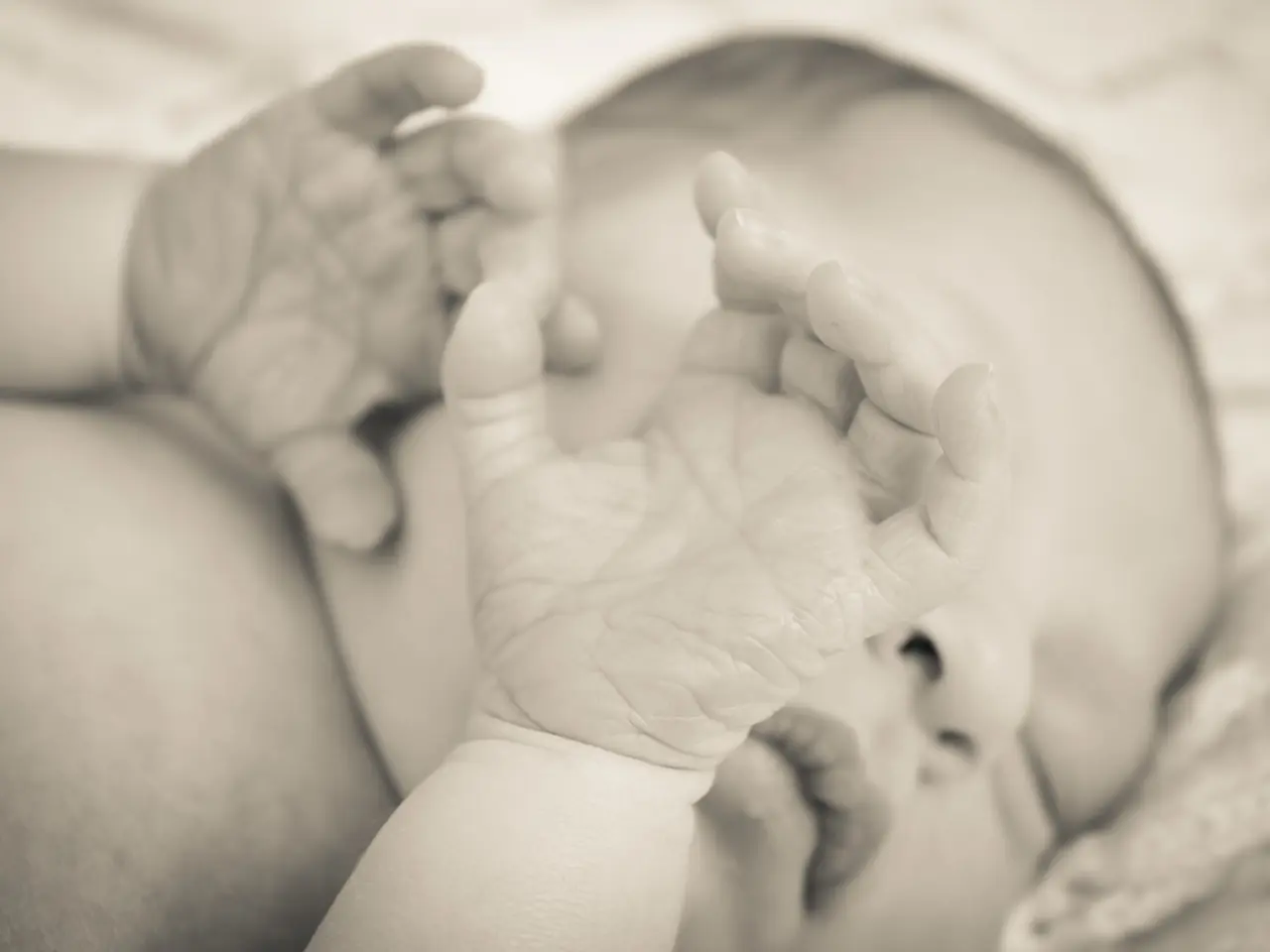Innovation in AI, jointly developed by 42 Technology and Addenbrooke's Hospital, aims to revolutionize newborn eye screening.
In a significant stride towards advancing pediatric eye care, 42 Technology has incorporated advanced AI features into newborn eye screening devices. The aim is to improve early detection of congenital cataracts, a condition that can lead to lifelong vision impairment if not addressed promptly.
The new AI-enabled devices, which are based on deep learning algorithms and imaging techniques such as retinal imaging and fluorescence capture, are designed to provide swift and accurate detection of congenital cataracts. These devices collect eye data in a non-invasive manner and process it within minutes, making them a potential game-changer in early detection.
The development of these devices aligns with broader advancements in AI and imaging in ophthalmology. Deep learning models trained on large datasets of fundus images have achieved very high accuracy (AUC ~99%) in cataract detection and differentiation from non-cataract cases, demonstrating the capability of AI to assist in early and precise diagnosis.
The trend in ophthalmic AI research is towards improving algorithms’ sensitivity and specificity, incorporating multi-modal data, and integrating explainable machine learning to enhance clinical trust and usability. Devices for newborns are expected to evolve to provide even faster, automated screening with handheld, portable hardware optimized for infants.
Early detection of congenital cataracts is crucial to prevent amblyopia and vision impairment in affected infants. AI-driven newborn eye screening devices could substantially shorten the time to diagnosis, facilitate timely interventions, and reduce diagnostic errors by standardizing assessments that currently rely heavily on clinician experience. They also promise scalability in diverse clinical settings where specialized pediatric ophthalmologists are scarce.
While details about another project by 42 Technology addressing threatened miscarriage are not available, this represents a promising frontier in pediatric eye care to reduce preventable childhood blindness.
It is worth noting that 42 Technology played a key role in developing the industrial design, user interface, system architecture, optics, and electronics for the Neocam ophthalmic imaging device, which is currently being evaluated in a multi-centre clinical trial, the Digital Imaging versus Ophthalmoscopy (DIvO) study.
This article was originally published in Femtech News, suggesting it is related to technology in the field of women's health. However, the project discussed here is not related to the Neocam ophthalmic imaging device or the DIvO study. The funding for this project was secured from unspecified sources.
- The advancements in AI and medical devices made by 42 Technology are not limited to pediatric eye care; they are also delving into Femtech news and health-and-wellness areas, especially in addressing medical-conditions like threatened miscarriage.
- In addition to the clinical trials for the Neocam ophthalmic imaging device, 42 Technology is also involved in technological research and development for other medical conditions, such as threatened miscarriage, though specific funding details remain unknown.
- Beyond ophthalmology, the science of AI and clinical trials will continue to be a significant force in the health-and-wellness sector, with potential implications for early detection and precision diagnosis of various medical-conditions, including those unrelated to eyes, such as threatened miscarriage.




